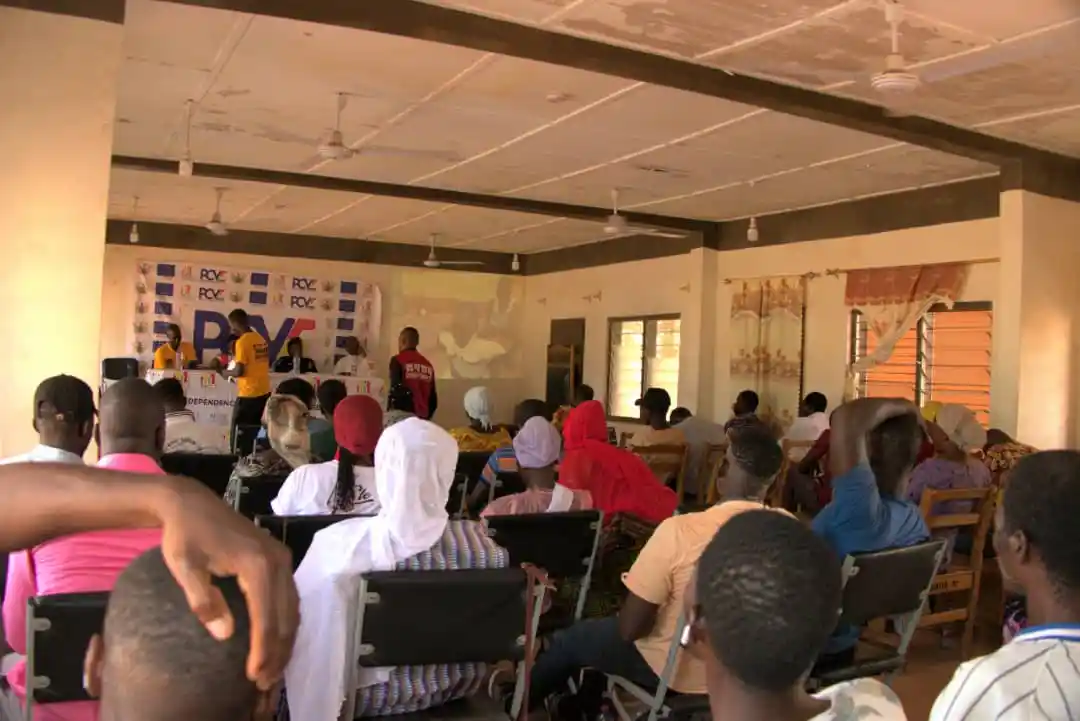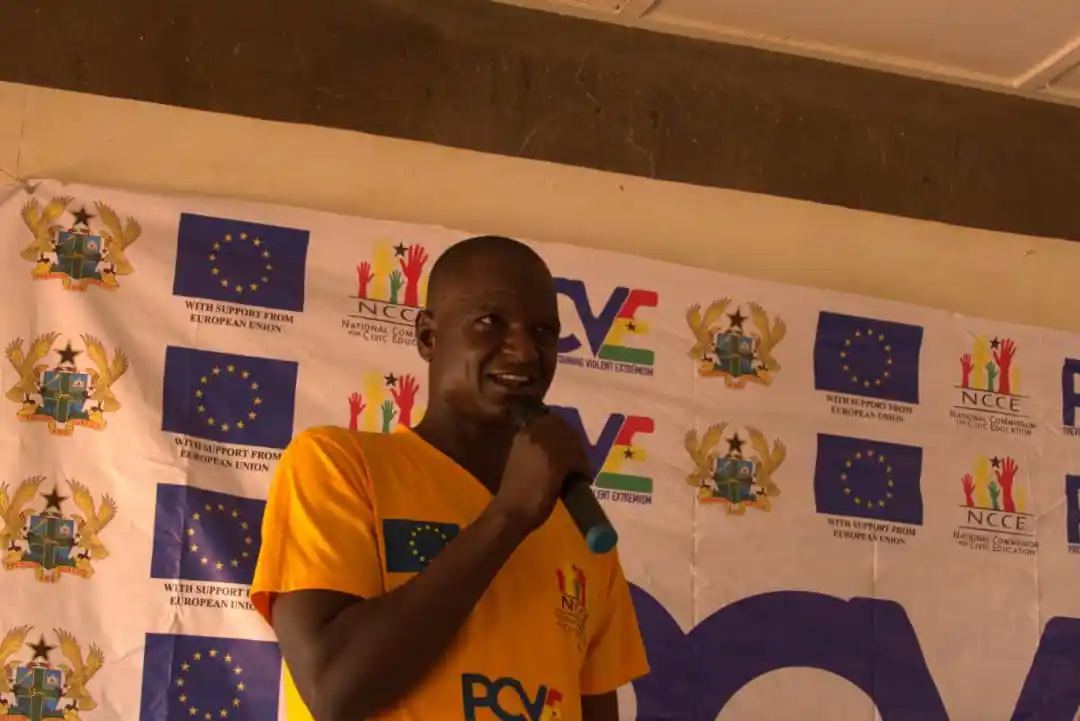Proximity to neighbouring Burkina-Faso, high youth unemployment, and general economic hardships, with the emergence of inter-party and intra-party misunderstandings in the Sissala West District of the Upper West Region, put the youth at risk of being vulnerable to radicalization.
Mr Mustapha Iddrisu, the Sissala West District Director of the National Commission for Civic Education observed this, therefore, proposed periodical engagements with the youth and political parties to keep them informed on the negative consequences of activities of extremist groups on the lives and well-being of Ghanaians.
He said this during a day’s engagement with youth groups in the district at Gwollu as part of the implementation of the European Union (EU) sponsored Preventing and Containing Violent Extremism (PVCE) project.
He said the engagement was aimed at sensitizing the youth to the negative consequences of joining violent extremist groups and the legal framework that prohibited violent extremist activities and terrorism in the country.
Mr. Iddrisu explained that the PCVE programme was also focused on building on the gains made through the implementation of previous EU-sponsored programmes such as NORPREVSEC was implemented by the Commission in 2021, to prevent violent extremism in the country.
According to him, the Commission recently carried out sensitization of identifiable groups and communities across the district under the PCVE programme, to promote social cohesion, peaceful coexistence, and public participation in the fight against violent extremism.
Mr. Iddrisu noted that as people living in border communities, much was expected of them as far as the fight against violent extremism was concerned and entreated them to channel their energies toward contributing to the fight against the menace.
He also reminded participants that the forefathers of the district did their best during the slave trade, to prevent slave raiders from entering the land by building the Gwollu Salve Defense Wall.
He said it was time for the current generation to emulate their grandfathers by building another wall to prevent extremist groups and their activities in the country.
He, however, noted that the kind of wall the current youth needed to build was not the physical wall, but rather a wall of ideas, unity, patriotism, nationalism, and strategies to prevent extremist groups from extending their activities into the country.
In all, 61 people comprising 34 males and 27 females participated in the sensitization programme.
Source: GNA


_
Follow us on our social media pages for more stories and posts from the NCCE.
https://www.instagram.com/nccegh1/
https://www.facebook.com/nccegh/


Leave a comment